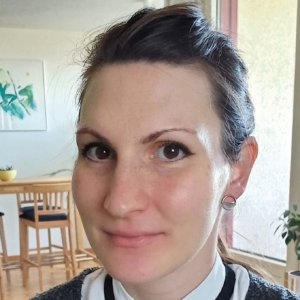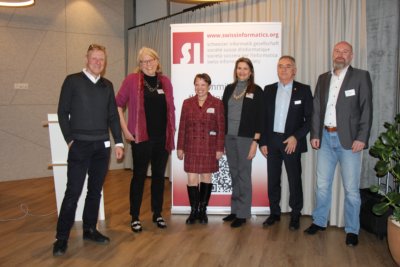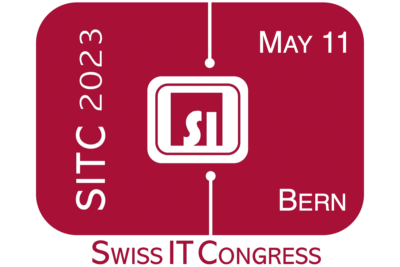. |
Sofija HotomskiSenior Requirements EngineerBorn: 1987 „Do not go into IT just to fix the strange statistic. Nothing is wrong with you if you are not excited about IT. But if you are interested in learning about IT and someday working in the IT sector, you should know that there is no single reason not to do it.“ Education/career: Bachelor and Master in Electrical and Computing Engineering, University of Novi Sad, Serbia; PhD in Informatics, Requirements Engineering Research Group, University of Zurich. |
How did you get into the IT industry?
What was your first encounter with IT? When, how and why did you catch fire then?
I was in highschool, unsure what I really wanted to do, but I knew I love maths. My dad motivated me to study informatics.
How old were you at that time?
19
How old were you when it became serious and you had to decide on an apprenticeship or a field of study, respectively?
I was 19 when I had to decide on a field of study.
What alternative professions or fields of study were you also interested in at the time?
Maths
What information did you have at that time about education and the opportunities afterwards?
I knew a bit about opportunities from people I knew back then in the field, but that was limited.
What spoke against it from your point of view at the time?
I knew zero about computer science, software or hardware 🙂
Who, which people, which circumstances spoke against a career in IT for you at that time?
Nobody was really against it in my surroundings.
What was ultimately decisive for your decision to go into IT?
My dad telling me about opportunities in IT vs. in other fields (including maths, as he was a mathematician and computer scientist himself).
Who, which persons, supported you at that time?
My whole family supported me.
What was your path after your apprenticeship or studies?
What were your first steps after graduation?
I went straight into a job.
Where were you in your career five years after the end of your training/studies?
• Professionally
I worked in an international company and after 5 years in the company I started my PhD.
• Private situation
I moved to Zurich with my boyfriend at the time, we then got married, we learned German, travelled around the world, met new friends.
Did you have
a) The same salary as your male colleagues? No.
b) The same career opportunities? If no, why not? In a way, yes.
I will never forget the moment when I talked to my class mate and learned that we started at the same time on the same positions in the company where we did our apprenticeship and he simply had a higher salary than me. The reason is to this day unknown to me.
Looking back, how do you assess the decision for IT?
Which of your expectations were met?
Working on big projects with different people; the salary is good.
What do you enjoy most about your current professional situation?
Having flexible working hours, work-life balance.
Which of your expectations were not met?
I did not have special expectations that are not met, but I would like to work on more famous projects or to start my own channel requirements engineering channel.
Would you make the same decision again?
Probably yes.
What do you regret or criticise?
That I was not that active in connecting to bigger international companies when I was a student.
How had your career been different if you were a man?
Probably not much in terms of what I am doing today, maybe the salary would be higher.
What would you do differently, and how exactly, if you could?
I would go more to the open doors events in companies to find projects that I really like and to meet people, because networking is really important.
If you had a magic wand, what would you wish for?
I would like to explain to everyone in IT comapnies that we are one team, going towards the same goal – to provide great solutions for customers. I would like to bring together the management and the technical part of the team. I see a gap in many companies, technical team(s) and management don’t get along and have “different goals”, while actually the ultimate goal is only one. Gender equality in that world is not even a topic.
What advice would you give to your daughter?
What advice would you give to your 15-year-old daughter if she would like to go into IT?
To be brave, to fight for herself, to learn a lot and use her knowledge as the strongest weapon in that fight and to be kind and a person with whom others like to work.
What is important to you in life from a professional point of view?
To give my best in everyday work in order to achieve the ultimate goal, to never stop learning and welcome mistakes, to learn from mistakes, to learn from others, to teach others, to help others and to remind them that we have only one goal.
What would a young woman retiring in 2061 have to consider when shaping her career?
It is important to know where we want to be in a couple of years, so that we can invest in our knowledge and go towards that goal. It is also important to be patient and not to expect everything now. Sometimes we have a clear vision of our goals, but forget that we need time to get there. Give yourself that time.










